– A lot of Italian mills make ‘Italian-style’ ranges for English merchants and non-English merchants such as Scabal and Dormeuil. These are not always labelled as such in the cloth books. Far fewer English mills supply cloth to the Italian mills, though there are some in Ariston and Caccioppoli bunches.
– More Italians mills are vertically integrated, doing their own finishing for example. And the big mills such as Zegna do everything from owning sheep to dying, spinning, weaving and finishing. English mills usually just weave.
– Italian mills rarely use lots of different brands and old names, unlike England where mills have merged over the years, leading to a lot of historic names.
The following is a list of the Italian mills, merchants and mill-merchants that supply cloth to bespoke tailors. Putting it together has involved input from four different Italian mills, though it is likely still not comprehensive. If anyone knows any I have missed, let me know and I will include it once verified.
Ermenegildo Zegna: Vertically integrated, from sheep to suit. One of the biggest producers and sellers of cloth to tailors. Buys cloth from other mills for its branded tailoring, but otherwise only sells its own cloth (other than cottons).
Carlo Barbera: Mill owned by Kiton, selling small volume to tailors
E.Thomas
Zignone
Botto Fila
Piacenza 1773
Reda
Eurotex
Carnet
Bonino Angelo Tessuti




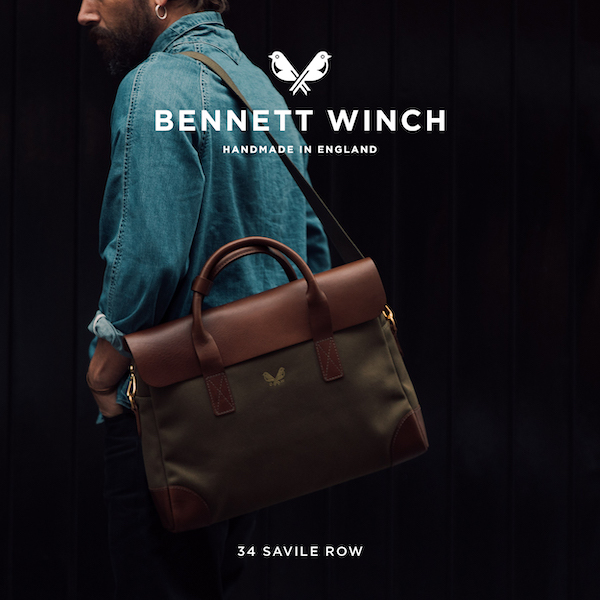







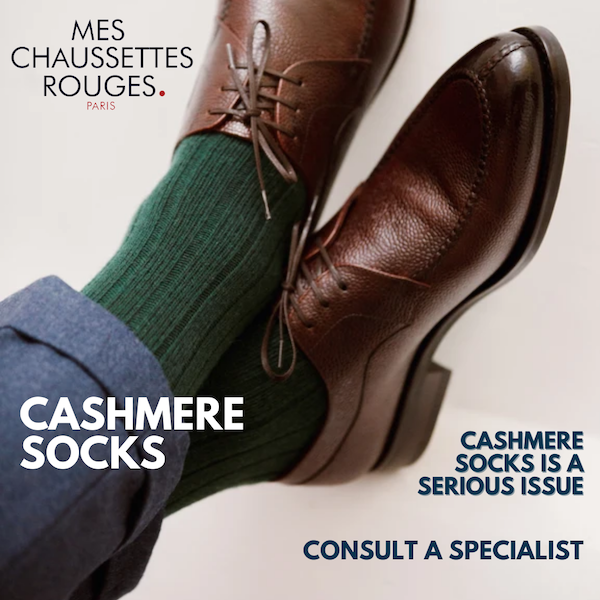








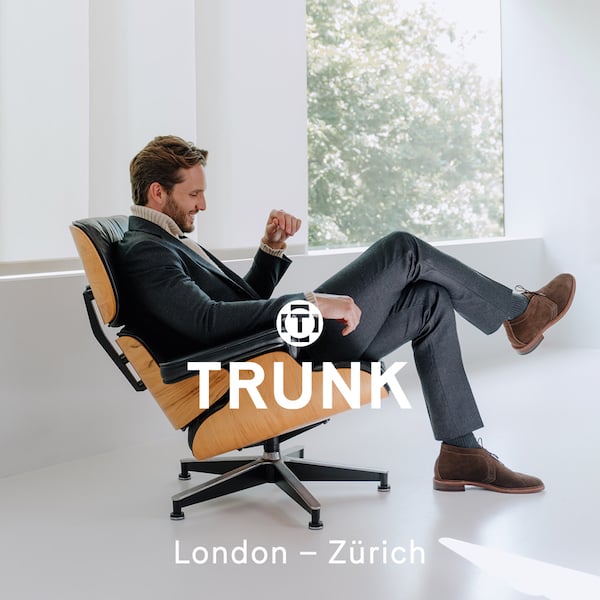

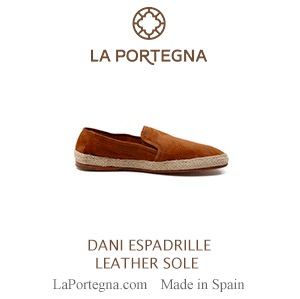


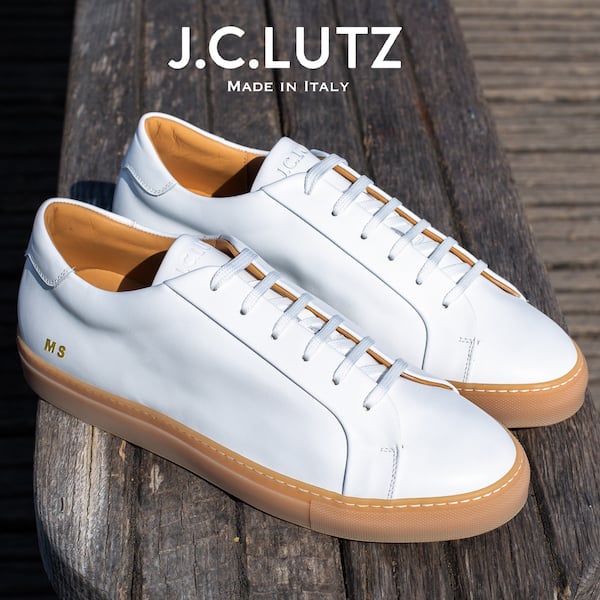

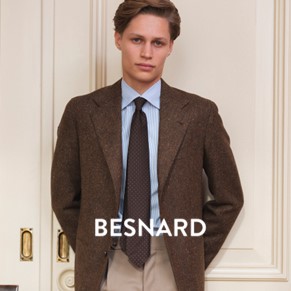
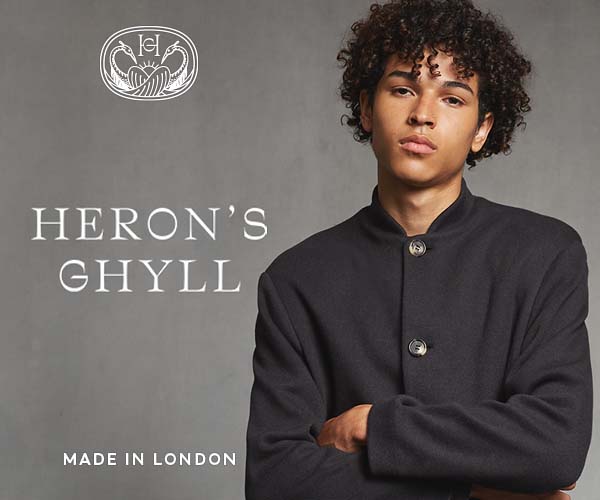


Colombo? If you are referring to Colombo Cashmere, they also have their own clothing line. They just opened a store in Rome.
Thanks, yes. I hadn’t included that point – I had only mentioned RTW lines under the big guys. Will add now though
Do you have any experience with Colombo Cashmere’s RTW or heard of any reviews of the construction?
Not of the Colombo RTW, no
Thanks for the post. Here are some other groups to look into:
– Reda
– Lanificio Puro
– Angelico
– Comero
– Tollegno
Also, I think E. Thomas is now mostly produced by VBC as they have a strong partnership with the HMS/Gladson group.
Thanks. Most of those produce very little for the bespoke trade. It is nearly all for ready-to-wear. If you have other information please let me know
Except for Reda, of course, which I had already included.
You’re right. I didn’t realize that was the focus of the list. Tollegno does have a quick service bunch book that is available with a minimum of 30 meters. It’s essentially for RTW but is available immediately, which is different than most mills where you must wait 90-120 days.
Reda does have a single bunch from which they offer cut lengths. It’s only been available since last September as a test program.
The others I listed, as you said, are only available in larger quantities.
Zegna, Ariston, and Loro Piana all have cut length programs. In Europe they handle them directly. In America (where I am) they use distributors.
Thanks Jason. Do you mean cut-length programs straight to consumers? That’s what readers want.
No, not to consumers directly. That’s twice that I’ve misunderstood the intent. I am in the tailoring trade and am coming from that perspective. Sorry about that.
Very, very interesting.
Thanks Simon
Where is Carlo Barbera?
You’re right, they do sell to tailors, though the volumes are very small. They are also 100% owned by Kiton.
Are any of the Italians offering cloth by the meter like Huddersfield, Fox and other UK firms? Thanks
Not to my knowledge, though I did talk to Barberis about it. Loro Piana and Zegna certainly won’t, but the other small merchants might. If anyone knows of any that do, please let us know.
Fartelli Tallia di Delfino?
I don’t think they sell to tailors? Have you seen bunches of theirs?
Fratelli Tallia Di Delfino (part of the Marzotto Group) do not sell to bespoke tailors directly.
They do however, have distributors/agencies around the world who sell for them.
Thanks
If I remember correctly I have seen some nice bunches at Pal Zileri Su Misura, but I understand that is no bespoke tailoring.
Yeah, that’s them rebranding other cloths for their MTM
Guabello?
They’re a small mill, owned by the Marzotto Group. I don’t think they produce bunches for bespoke tailors, but let me know if you have seen otherwise.
I’m the distributor for Guabello in the USA. We distribute by the cut length or full roll. We have two collections of very comprehensive full range of suiting in Super 130’s and 150’s fully stock supported here in the USA and shipping worldwide. Guabello may not get a ton of press because its a smaller more artisan type mill, but they have been producing for over two hundred years. I was absolutely blown away by the quality the first time it was introduced to me.
Thank you Matthew
Hi Matthew!
Do you distribute to young labels? If so, I would like to connect with you.
Hi Mathew,
Could you get someone from Guabello to get in touch with me? I’m based in Mumbai, India and I’m constantly on the look out for new fabric associations. Do check the website and get back to us. Thanks.
Can you comment on the merchant Marzoni/Toni Tommi? They’re located in HK and internet hearsay regarding where their fabrics come from is rampant. The fabrics seem to vary in quality but all I’ve seen claim “made in Italy.”
I don’t know them, but I’ll ask around.
‘Made in Italy’ doesn’t mean that much, (a) because the rules of what that means are less strict than in other countries, so just finishing in Italy is fine, and (b) because there is some poor quality cloth woven in Italy
Marzoni is not a mill or merchant as such. It is a brand created by a company in HK named Toni Tommi to promote its own selection of Italian fabrics.
From my knowledge, they’re sourcing their fabric from different mills in Italy and branding the fabrics (the selvage, too) as Marzoni.
That makes them a merchant, doesn’t it? How are they different from Caccioppoli in that respect?
Marzoni is a merchant that sources from a variety of Italian Mills that they then rebrand- they have a warehouse in Hong Kong that they supply cut length fabrics to for Asia production. There are about 5 major merchants in HK that do significant volume and ‘Marzoni’ is one one of them. The other merchants run other cut length programs for a major mills (ie REDA) and most of them also have their ‘in-house’ brand that they rebrand similar to Marzoni. It is run by a father-son team and we were considering buying their elastine cotton fabric from because we didn’t want to hold the inventory of crazy cotton colors. Hope this helps!
Richard Hall (HallMadden.com)
AFAIK you can visit Loro Piana and Colombo outlets in Romagnano and buy cloth by the meter there.
Can you comment on Lanificio Puro tessuto on their textile? I’ve recently ordered a bespoke suit and the shop recommended using puro textile. Obviously I am not expecting loro piana or zegna quality but the shop claimed that it’s better than canonico or umberto durando or any other textile at that price range. I trust their tailoring skill from past experiences but still cannot help to feel bit fishy about it since i have never heard of it. You sharing your comment would be most appreciated. thanks!
I have no experience with them, but if there’s one message from this post it’s that you shouldn’t worry too much about the cloth. If it’s made in Italy, for example, you’re on safe ground
Hi Simon, I accidentally read your article and thought to mention my family’s company Bonino Angelo Tessuti. We work in the textiles business selling mainly high quality stock fabrics from some of the most important Italian mill, in particular Vitale Barberis Canonico. We do have many different kind of customers from tailors to big manufacturers but also to any gentleman who wants to buy cloth by meter.
Thanks Elisabetta, I didn’t realise you sold to the bespoke industry. I will add you to the list of merchants
Simon
Ciao Elisabeta
Id like to connect with you
And see what you have to offer
Gracie
Mr. Crompton,
As I’m sure you know,Loro Piana has sold a 80% majority stake in the company to the LVMH group and has received final regulatory approvals etc. I’ve always considered Loro Piana to be the epitome of quality workmanship and materials,as well as superb and beautiful design. Are you concerned that the quality and style will go down now that Loro Piana has been sold to a conglomerate? Often when this happens the quality goes down and the price goes up as the new owners tend to be more concerned about return on investment rather than quality,style and beauty. I must admit that I was saddened when I heard this news. Is there another company that you can recomend that does similar high level work as Loro Piana,but is still private and wants to stay that way?
Scott Fisher
To be honest, I wouldn’t be that worried about it Scott. Several things might suffer, including competition in the luxury and fabric markets, but the quality of Loro Piana is unlikely to. In the market that LVMH wants to compete in, quality is highly important. Indeed, I’m hopeful that they will keep the quality but give the designs a little bit of a boost.
Dear Mr. Crompton,
thank you for including Lanificio Luigi Colombo in your list. If I may add a few facts, we globally operate a dozen stores and serve about 250 distinguished wholesale clients with our apparel collection. The size of our weaving operation is at least about equal to that of Loro Piana, Cerruti, or Carlo Barbera, as it equally holds true that in terms of meters weaved we are in fact world market leaders in the field of cashmere and noble fibres. Just wondering if you would deem these facts sufficient to qualify us among the list of ‘big guys’ you mention? Referring to Mr. Fisher’s very pertinent observation, what I can say in all honesty concerning the LVMH-transaction is that we are currently seeing an important influx of clients and very highly qualified personnel, there seems to be a big shakeup under way in the marketplace. We are therefore not only curious, but also very confident about how this trade will look in 5 to 10 years time, and more than that convinced that true passion for quality will more than ever hold critical sway. Thanks again, best regards and warm wishes, Marc Sondermann
Thanks Marc. Readers of this site are primarily interested in cloth used by bespoke tailors, but the information is very valuable nonetheless.
Simon
Mr. Sondermann,
I find your comments interesting and astute concerning a shakeup going on. May I assume that you believe as I do that within 5 years or so the Loro Piana brand will be, shall we say,different in terms of quality and craftsmanship? Scott
So I’m a little late to the party, but since this was such a good read I’ll ask a couple of follow-up questions.
And great article, thank you Simon.
I always wondered if Canali was a vertically integrated (like Zegna and Loro Piana), mainly because I have often seen Canali branded fabric books in certain retailers. I take it from this article that they are not a mill-merchant, but do they ever function as merchant to sell fabric to third parties for manufacture?
Somewhat similarly, I have seen books for Fratelli Tallia Di Delfino in one of the boutique retailers in NYC (though nowhere else). Are Fratelli swatches generally distributed at the retail level, or only at wholesale to manufacturers?
Canali is not a mill, but i don’t know if they do some merchant work.
So many more questions. I’ll try to be brief…
From reading your two posts on this issue, is it fair to say that the only vertically integrated English or Italian operating firms are: Zegna, Loro Piana, Holland & Sherry (through Tom James) and Dormeuil (French, but doing a lot of business in England, and I think they now have their own retail stores)?
Should Kiton count in this, through it’s ownership of Carlo Barbera? And what of Isaia – like Canali, I believe I typically see their books at boutique tailors. Are they in the merchant game?
Also, how does Gladson fit into this mix, as an English merchant that now owns Vitale Barberis?
You’re broadly right, except for Dormeuil which doesn’t do much retail – Scabal does a little bit but again doesn’t really count.
Why do you think it’s important to have vertical integration though?
Well, I’m trying to think through what the consequences of vertical integration might be. I think there might be two issues. The first is price and the second is exclusivity.
On price, it seems like Holland & Sherry doesn’t really care who they sell fabric to, and does not favour prices they sell to their Tom James retail operations. But with Zegna I’m not so sure. In my (admittedly limited) experience it seemed that Zegna is priced significantly higher than their competitors at all fabric levels without clearly being a better quality. I am wondering if this is because they have significant retail operations, and the price for their cut fabrics is increased so that it is less competitive with their RTW.
On exclusivity, vertically integrated companies may have some fabrics that you literally cannot get anywhere else. This may be the case with Loro Piana, where they produce some cashmere that no one else will have, and does not go into their books. This matters because, and for example, there is often a lot of talk of the nice cashmere windowpane looks often associated with Kiton/Isaia — but absent integration you don’t necessarily have to buy from them to get the same fabric; I can go straight to Ariston (which I believe they repackage for their RTW and MTM). Point being, vertical integration may create some brands for which you have to buy only from them, but it generally doesn’t seem like that is the case.
Hi Tim,
Those are good points, but in my experience from working with such brands I don’t think they are generally correct. Vertical integration doesn’t really affect price: Zegna is more expensive because it is a fashion brand; it spends a lot more money on runway shows, advertising and design – including design of those cloths. But of course that doesn’t necessarily mean they are better. Vertical integration also doesn’t necessarily mean more exclusive cloths. Many fashion brands only offer exclusive designs (e.g. Ralph Lauren) but they are not vertically integrated. Vitale Barberis is vertically integrated except for retail, but they pretty much only produce exclusive ranges for others.
In the end, vertical integration is a cost saver and an efficiency for some, but not for others. Those that like it say it gives them greater control; those that don’t say it limits their choices. It’s a bit like factories and production lines: when one worker makes a piece from start to finish, the brand holds that up as a sign of quality; when workers are highly specialised, they laud that just as much.
Simon, is there any vertically integrated company that actually provides a value to the cutomer in terms pricing of the garment? Zegna’s high overhead,for example, appears to negate any cost savings that should,in theory, accrue to the customer because the company produces it’s own cloth. The vertical intergration story appears to be nothing but slick marketing and frankly,maybe even a bit deceptive. Belvest or Caruso can buy as high quality and beautifully designed cloth as the verticals produce and be very competitive in terms of pricing,perhaps less expensive if their overhead is less.
If there is any cost saving, it’s pretty small. I’ll spell out the mathematics of the cost of cloth some day, but the margin is not that great – far higher on the shift from wholesale to retail.
No surprise there,but thank you for the clarification. So what we need now is a list of five or so companies, that are not fashion houses, that in your view stick to the business of making high quality and well designed men’s clothing. This list would be most helpful for many of your readers,me included, that don’t have access to quality bespoke clothing.
I’m afraid that could be almost any high-street company – the price is often a decent indication, unless as I said they are spending it on lots of other things like fashion shows. Unlike bespoke clothing, the quality and designs at high-street companies also varies a lot over time, so it’s very hard to give recommendations. For design, learn from sites like and use your own eyes. For quality, apart from suits and shoes there’s little to do except ask friends what they have that has lasted well
I would agree with that, especially on exclusivity. But on the price point, it would seem like my thoughts on Zegna would stand (although for the wrong reason). If Zegna fabric ends up costing more because it is investing in being a name-brand fashion label, then vertical integration is a net-negative. For a consumer focused on the quality of the fabric, as opposed to the name brand.
And again I say that because, in my experience, I have always found Zegna fabric to be sold at a consistently higher price point without it seeming to be of better quality than English cloth. But I will admit to limited experience wearing it (the extra cost always through me off, and I couldn’t justify purchasing it).
I would very much be supportive of an article on the economics of cloth production…as you may be able to tell.
Thanks Tim, I’ll plan one
Looking forward to that Simon. By the way,when are you going to write your second article on watches?
Soon Scott, sorry travels have got in the way recently
HI Simon, for all the mill that is fully intergrated, is Dormeuil, Drago and Holland&Sherry fully intergrated? thank you
No, none of them are. None of them do everything, and while Holland & Sherry does a lot of its own weaving, Drago for example is just a merchant and does none of its own weaving I don’t think
Thanks Simon, as listed above, I can see that you are putting Drago as a mill. I thought that a Mill meaning they weave their own cloth. Please clarify it if I am wrong, thank you.
I’m sorry, yes you’re right, I’m getting Drago mixed up with someone else
I sell made-to-measure at a men’s store in Baltimore. We sell custom Ormezzano fabric for suiting–with the Ormezzano label.
Simon would you know from where does Isaia source its suiting / Jacketing because there checks are very interesting.
And also do you know which mill does Scabal buy there velvets from?
Most designer brands will commission their own cloths from mills or merchants, so you won’t be able to buy them anywhere else.
I don’t know on the velvets. I can check, but often the mill itself won’t sell the cloth by the cut length anyway – again, that’s the role of the merchant, to design things and then take the risk on having a piece made up
I am looking to buy high quantise for my RTW brand . Its not for Cut lengths. quantities will be minimum 100 mtrs thats why I want to know which mills does Isaia buy from.
Hello Mr Simon,
I have a small request. I am from Mauritius and I want to buy a small quantity of loro piana and Zegna fabrics. Can you inform me where I can have these?
Thanks…
In Baltimore Maryland?
I’m the owner of Imparato spa that own and sell fabrics under brand Ariston. I see that you don’t have any informations about us.
My family has been in the business since 1920 and we are located near Napoli in the biggest European commercial center.
We do buy only from Italy ( except the Irish Linen) and most of our collection is exclusive. We are fast and dynamic trying to combine our great experience with modern fashion. We do change the entire collection ( around 550 shades) every season. We only sell under our brand name. We work a lot to be different and offer a global variety for each need of a man wardrobe.
Thank you Amedeo, great to have that. I will fill it in.
Simon
Hey Amedeo,
I saw your comment, can we have a talk please? We are looking for Italian fabric…
Simon, thank you for such a great list – it was really helpful in my search. I was hoping someone of the experts here might know the mill(mills) which are most likely to manufacture waterproof fabrics (usually a combination of Poleammide and Paliuretano). I would really appreciate any ideas/suggestions! Thanks a bunch again!
This main difference between Italian vs. British mills (vertically integrated vs. not) must be very longstanding. The Italian term “lanificio”, literally ‘wool-maker’, comprises all aspects of the process, whereas English has only words for more specific stages of the process, such as weaver, mill, and so on.
As early as in the 12th and 13th century English wool would routinely be shipped to Flanders or Italy for weaving.
Great job Simon.
I would say it’s the best content on bespoke menswear. I feel sorry for joining late.
Simon can you tell me some mills which make tuxedo facing fabric. That’s 1 thing which I find really difficult to find. Will really appreciate the help.
Dear Simon,
I am looking to buy stock lots for sports jacketing ( colourful like ETHOMAS in small quantises 10 -25 meters do u know anyone in europe who does stocks for mills like ETHOMAS
Hi Chari,
we can help you.
Please contact us by email [email protected]
I have sent a mail to you Amedeo,
Look forward to your reply
Thanks
Hey Amego,
Are you the Italian fabric mill?
Dear Simon and Readers,
Thank you for your very helpful list!
I am interested to know who in Italy specializes producing in Linen-Silk Blend fabrics for a low volume start-up clothing brand in NYC. Any suggestions are greatly appreciated! Thank you
Hi Simon, so would an Italian mill sell fabric to Holland & sherry, dormuil, and scabal, and if so, which mill?
Yes. Particularly Dormeuil and Scabal – and many of those listed here do, plus others. It’s a very open interaction, and is one more reason why the companies you mention should be seen as designers, not mills
I have recently seen a bunch from Modesto Bertotto of Italy.
Hi Simon,
Can you tell me whats the best companies to send bespoke books to India apart from lord piana, zegna, scabal, dormeuil.
I have my own stores with bespoke clients in usa, uk and Italy.
My company Saviero Texiles based in Hong Kong stocks and distributes fabrics from Ermenegildo Zegna, Guabello, Lanificio Tessilstrona, Soktas, William Halstead and other mills around Europe. Contact us if you would like to open an account and gain access our cut length program. We have a beautiful collection and serve tailors worldwide. Free shipping to any factory in China.
I just made an account on your webpage.
Hi Vishal, I am from India I want to purchase stock lots of shirting from Italian Mills and I will be supplying it to bespoke industry client. Can you please help me out for buying?
Regards,
Hi ! Everyone. I am a formal fashion enthusiast and always very much interested in men’s luxury customized suiting which i also design. It is quite a helpful read above but I need some help here. Can anyone list the names of some most popular global brands that also sell lose fabric for stitching eg. Armani etc. and how would i be able to buy theur respective fabric on order basis or maybe have thier latest collection books. Please guide. Thank you!
Hi Simon! I can see you mentioned Ariston among the cloth merchants. I’m getting some cotton chinos made from one of their cloths. What’s your opinion on their fabrics qualitywise?
Regards,
Mattia
Good, nice quality.
The merchants don’t really vary much in terms of quality… In some narrow areas, perhaps, but generally they’re very similar. Particularly as they might all be having them woven at the same mill
Hi Simon
does Caccioppoli have its own mill?
No, it’s a merchant
So when we making cloth with Caccioppoli , actually we are using fabric from other mills
So what is the point to use Caccioppoli?
Because mills are often merely producers, not brands.
Do you care what your cloth looks like? You need a design team.
Do you want it to be in stock? You need someone to buy large amounts of it and hold it.
Thanks Simon, You have shared very useful information explaining difference between Mill and Merchants.
It’s very useful to share the brands of different mills and Merchants.
Hi, Are there mills i can procure fabric from on a regular basis for my bespoke menswear business in India?
All the merchants mentioned here, or mills that are also merchants, offer cloth by the cut length for bespoke tailors.
However, they cannot serve every tailor in the world and therefore don’t provide bunches etc to everyone. I’d suggest starting with the largest ones, but don’t be surprised if they want to know a bit about your business before agreeing to work together.
I know this is an old article now, but I was wondering if you had further thoughts on Reda these days in terms of quality or any experience you have with them? I’ve noticed them gaining popularity in the cut-length world, where as I generally knew them as RTW fabric in the past.
I don’t, sorry. I’ve never used them.
Hello,
I am looking for a Mills or Merchant that sells high quality woven polyester for men swim trunks. Thank you
Hello, Simon! I know a reader has pointed out Tollegno fabrics. I was wondering if you knew anything about the quality of these. I found a 470 g/metre navy flannel fabric on the internet, and I’d like to buy it for a custom suit, but I am afraid of early pilling and tears. Any thoughts?
Tollegno has been quite good that I’ve seen, but I really couldn’t speak for a fabric that I haven’t seen in person.
In general, flannels tend to be lighter and less robust from Italian mills, but that’s a very broad generalisation that’s really not that much use. I would only recommend buying cloth online like this if you can get first-hand experience from a wearer or maker on it.
I see. Thank you! The trouble I have is that I live in Romania, and here fabrics from reputable mills are a rather rare find. Not to mention flannels, or heavier fabrics – I recently bought a flannel-y fabric and when I got home I weighed it and it was… 210 g/sqm (lol!). Being that this one is labelled 470 g/sqm, it got me interested. But perhaps I should keep on searching in physical store since, as you said, most of what fabric is can only be judged in person.
I think that’s the safest approach, yes. Or if you buy from one of the bigger names online, such as Fox. You will end up paying more that way though.
What is the average price per yard of caccioppoli fabrics?
I’m afraid I don’t know currently – and it depends whether you’re talking about retail or wholesale. Best to check with them.